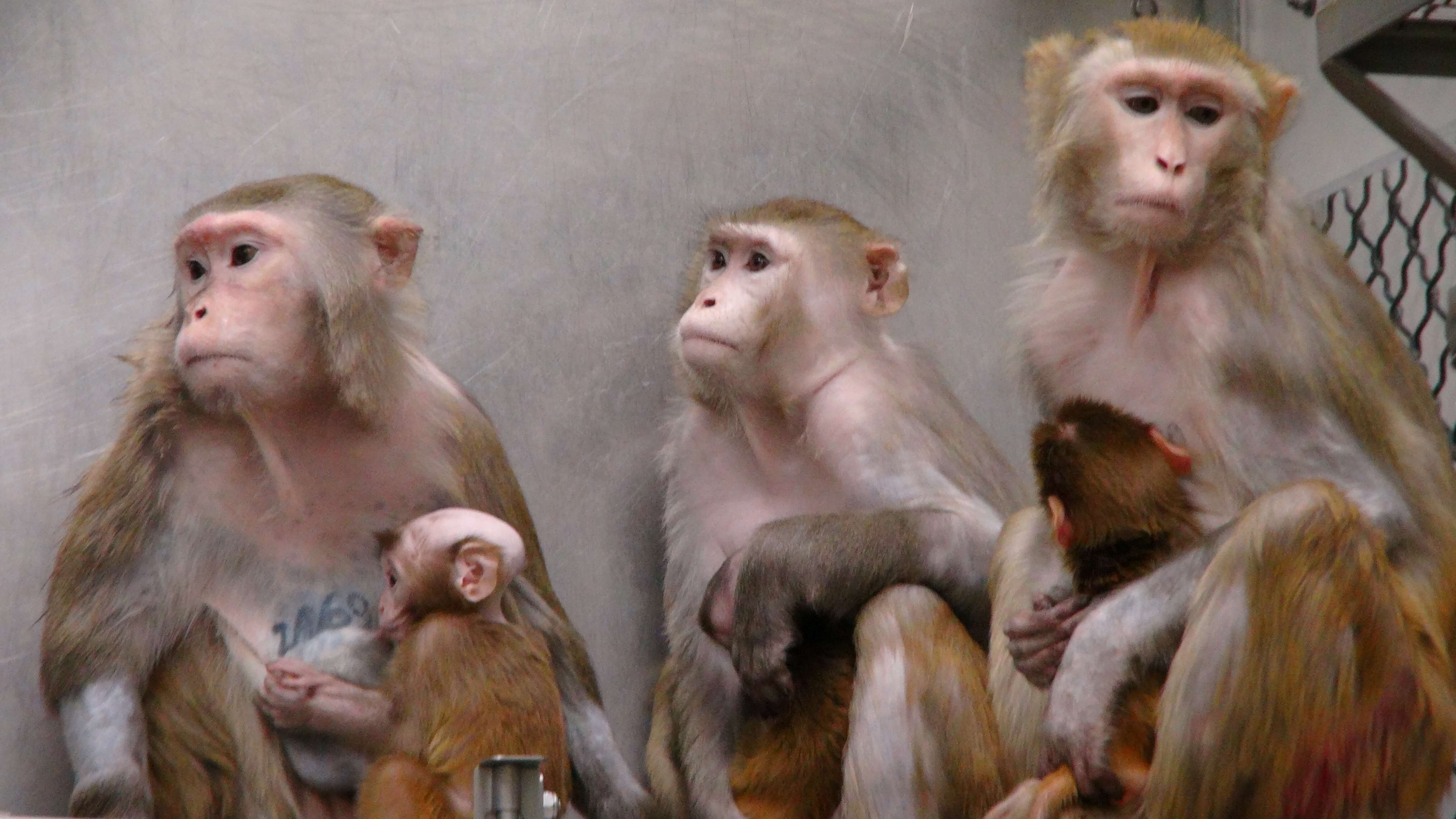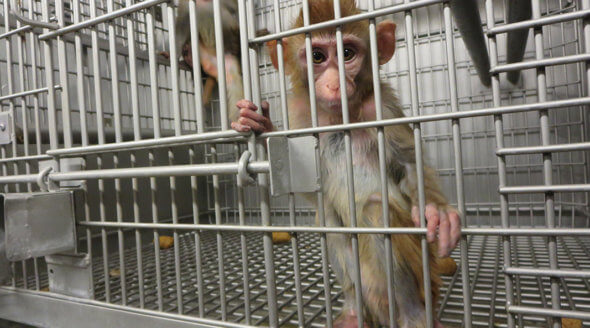Report Reveals Increased Demand for ‘First Generation’ Primates in British Laboratories
Figures published by the Home Office today reveal that 3.4 million procedures were conducted on animals in Great Britain in 2019 – the lowest figure since 2007. While this is a move in the right direction, more work is urgently needed to end all experiments on animals.
Each one of those 3.4 million procedures represents terrible suffering – and even death – for sentient beings who think, feel, and experience pain just as acutely as we do. These statistics mean that 3.4 million times last year, animals were used in experiments in which they could be repeatedly poisoned, starved, deprived of water or sleep, force-fed chemicals, blinded, terrorised, infected with diseases, brain-damaged, paralysed, gassed, surgically mutilated, or tormented in other ways.
Dangerous Demand for Primates
Last year, experimenters reportedly used far more “first generation” primates – animals bred in captivity from wild-caught parents – than in recent years. Most primates (90%) used in British laboratories are born in Africa or Asia before being shipped to the UK in cramped and gruelling conditions.
Importing primates from overseas is dangerous for both monkeys and humans. The stress of transportation has been shown to compromise primates’ immune function, potentially leading to the reactivation of deadly diseases such as tuberculosis. Sickly monkeys are more likely to transmit pathogens to humans and to die in transit.
Why Are We Still Subjecting Animals to These Hellish Experiments?
No one of sound mind would claim that it’d be OK to separate humans from their families, traffic them overseas, and subject them to non-consensual, painful procedures. So how can we condone doing so to other sentient beings?
The answer, in a word, is speciesism.
One definition of the toxic mindset that is speciesism is “the assignment of different moral worth based on species membership”. It’s no surprise that it’s grounded in the same power structures as other negative “isms” – a 2018 review published by University of Oxford researchers found “positive correlations between speciesism and prejudicial attitudes such as racism, sexism, [and] homophobia”.
Even though we may not realise it, speciesism can colour our view of those outside our own species to the extent that it affects our thoughts about, treatment of, and interactions with other animals. It’s the reason why humans have assigned an arbitrary hierarchy to other species.
Can you imagine experimenters forcing mutilated humans to lift heavy weights before killing them? This is what experimenters at Newcastle University did to fellow primates.
Meanwhile, in a laboratory near Edinburgh, dozens of individuals were crushed to death in rubbish compressors, and workers killed the survivors by breaking their necks. We’d be outraged if humans were treated this way, so why do we allow these things to be done to rats, who feel pain and fear, just like we do?
This hierarchy of species is based not on science or logic but rather on deeply ingrained, baseless prejudices. Yet those prejudices are carried into our science.
Experiments on Animals Are Bad Science
This ethical blind spot not only causes animals profound suffering but also stunts scientific progress. Just like humans, all other animals can feel pain, but the bodies of different species vary greatly and often process or react to drugs very differently from one another. There’s variance within species as well – for instance, experiments on mice can yield very different results depending on which strain is used. So applying the results of experiments on other animals to humans is difficult, if not impossible.
“[E]ven the most promising findings from animal research often fail in human trials and are rarely adopted into clinical practice.”
– 2014 review published in The BMJ
Some drugs that initially proved safe in other animals have caused devastating and even deadly reactions in humans. For example, a involving a Viagra-like drug (sildenafil) was terminated after 11 human babies died from drug-related lung problems.
Trying to study human reactions and diseases by experimenting on other species is intrinsically flawed and bad science. We desperately need a paradigm shift away from viewing and treating other species as disposable tools and towards an ethic that respects all life.
Urge the Government to Act – Support PETA’s Research Modernisation Deal
Use your voice to encourage the government to create a clear strategy for replacing animals in experiments. Sign our petition to support PETA’s Research Modernisation Deal. Lives of all species – ours included – depend on it.





